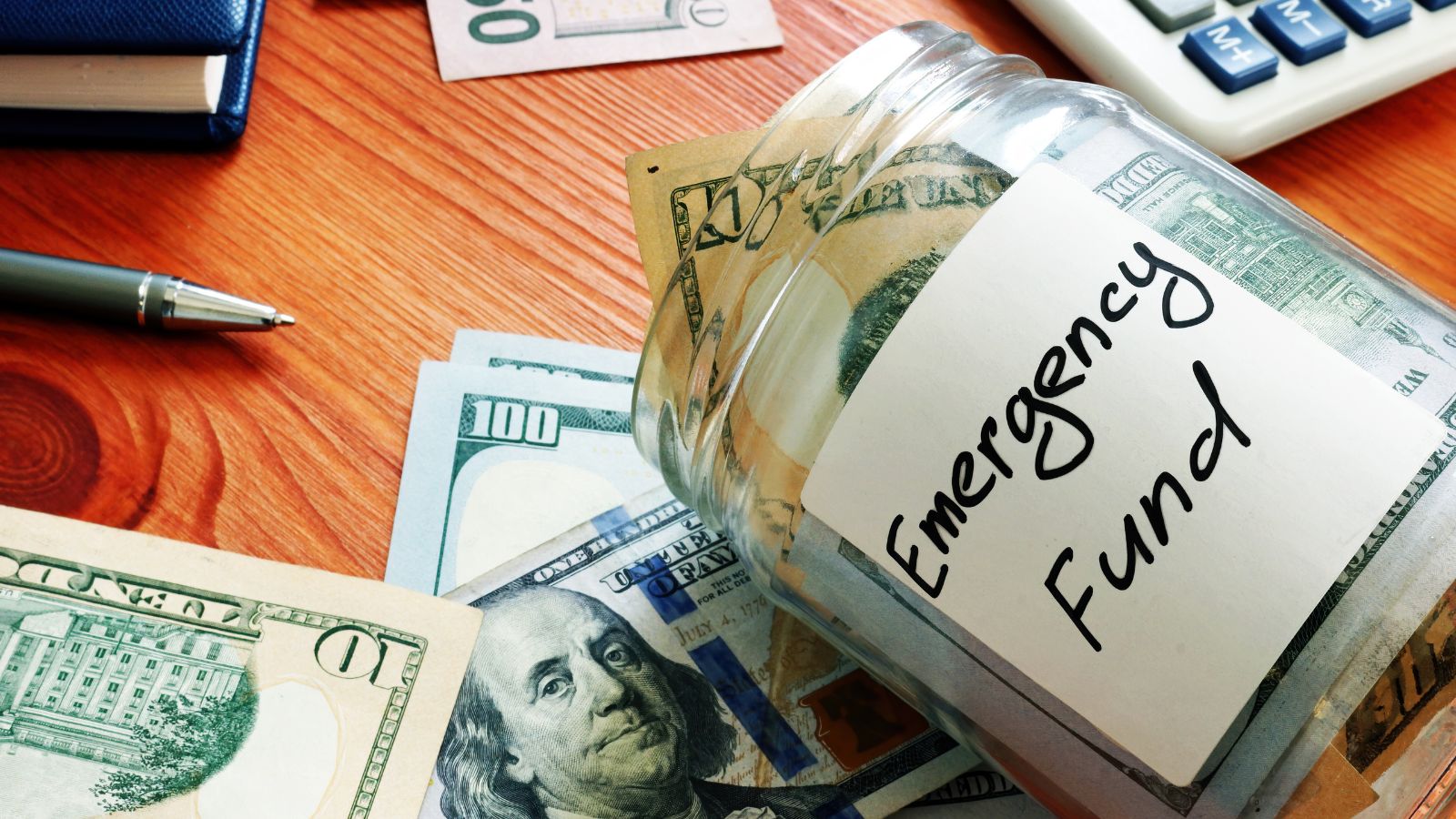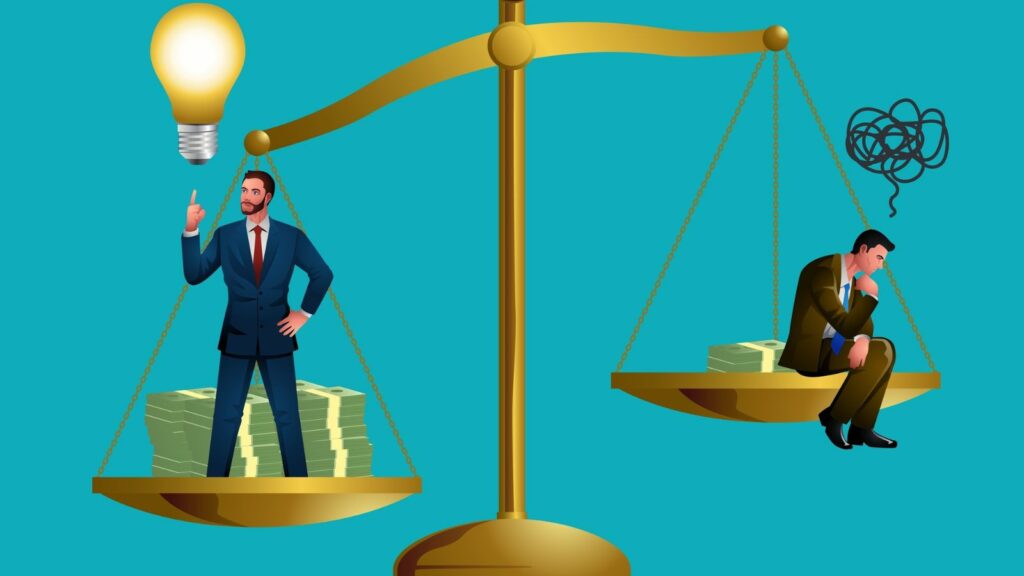It is a stressful time for many, and sometimes, the signs of financial instability are subtle until they become impossible to ignore. In a world where economic uncertainty continues to rise, people are often caught off guard by the creeping instability in their finances. You don’t always see the cracks until the foundation starts to give way. However, these early indicators are worth paying attention to because the earlier you recognize them, the sooner you can take action to safeguard your future.
Paycheck to Paycheck Living

Paycheck to paycheck is more common than ever, but if it’s getting harder to stretch your income to cover necessities, this is a major red flag. Rising costs and stagnant wages might push you to the brink, and without an emergency fund, any unexpected expense could lead to a financial spiral.
Credit Card Debt

Are you swiping your credit card more often to make ends meet? Relying on credit to cover everyday expenses is a sign that your financial balance is out of whack. When credit card debt starts to grow faster than your ability to pay it down, you’re treading on dangerous ground, especially with rising interest rates.
No Emergency Fund

An emergency fund is a safety net for financial disasters. If you’ve already depleted yours or never built one, you’re one unexpected car repair or medical bill away from financial disaster. Rebuilding this fund should be a priority.
Side Hustles

A side hustle can be a great way to earn extra income, but relying on multiple jobs to keep your head above water indicates that your primary income isn’t enough. The gig economy isn’t always as stable or reliable as traditional jobs, adding further uncertainty.
Ignoring Financial Advice

Maybe you’ve heard the advice to budget, save more, or cut back on non-essential expenses, but if you’re ignoring it or putting it off, it’s likely because your financial situation feels too overwhelming to face. Avoiding the problem won’t solve it, though it only makes the inevitable collapse more painful.
Late Bills Payments

If you’ve started delaying bill payments to keep up, it’s a disturbing sign that you’re struggling. Late fees pile up quickly, adding to the pressure, and your credit score can take a nosedive, making future borrowing more expensive.
Using Retirement Savings

Early Retirement savings are supposed to be untouchable until you’re retiring. But if you’ve found yourself withdrawing from your retirement accounts, you’re not only losing your future security but also facing hefty tax penalties.
High-Stress Levels Surround Money Conversations

When talking about money becomes stressful or anxiety-inducing, it’s a sign that things are unraveling. Financial insecurity breeds constant worry, and if you’re experiencing sleepless nights over how to make ends meet, it’s time to take stock of your financial health.
Not Keeping Up with Inflation

Inflation rates have hit record highs, and if your salary isn’t keeping up with these rising costs, your purchasing power is steadily declining. When your paycheck doesn’t go as far as it used to, this silent erosion of wealth can be devastating over time.
Constant Thinking About Money

It’s natural to think about money from time to time, but if it’s consuming your thoughts daily, it’s likely due to financial strain. Constant worry about how to pay for things or where your next paycheck will go is a clear sign that your financial security is at risk.
Falling Credit Score

A falling credit score strongly signals that your financial stability is in danger. Late payments, maxed-out credit cards, or high debt-to-income ratios can all cause your score to drop, making it harder to secure loans or get favorable interest rates.
Health Insurance

This is a severe sign if health insurance premiums are slipping out of your budget or you’re avoiding medical care due to costs. Medical debt is one of the leading causes of financial ruin, and without insurance, you’re exposing yourself to catastrophic expenses.
‘Buy Now, Pay Later’ Plans

It might feel like a good way to stretch your money, but relying on “buy now, pay later” plans for essentials is a clear sign that your income isn’t meeting your needs. These plans can lead to accumulating debt, making it even harder to manage finances.
Your Financial Situation Has Changed, But Your Lifestyle Hasn’t

If you’re struggling to make ends meet and you’re still living in the same way you did five years ago, your expenses may have increased faster than your income. It’s easy to overlook this slow change until it feels like you’re always catching up.
Job insecurity

Job insecurity has become a concerning concern due to economic shifts and the rise in layoffs. If you feel like your job may be in danger, it’s important to plan ahead of time and begin considering your options.
Taking Out Loans for Everyday Expenses

A person began taking out personal loans to cover monthly expenses, which means he is living beyond his means. Borrowing money for essentials like groceries or rent is a strong indicator that something in your financial life needs immediate attention.
No Room for Saving

Savings should be a regular part of your financial plan. Suppose your income only covers bills and daily expenses with no leftovers for savings. Your financial cushion is shrinking, and you may be vulnerable to future economic challenges.
You Cannot Make Plans for the Future

Your financial status may be unstable if you feel that long-term financial planning is unachievable, including saving for a house, retirement, or even a trip. It might be difficult to establish a stable economic foundation over time if you are unable to plan for the future and are caught in a loop of thinking only about the here and now.
Conclusion

In a world where financial uncertainty seems to be the new normal, recognizing these warning signs can help you act before it’s too late. It’s not about panicking or giving up hope; rather, it’s about taking control of your situation and making adjustments before you find yourself facing a financial crisis that’s not easy to recover from. Whether that means revisiting your budget, seeking financial advice, or exploring new income streams, the earlier you start, the better off you’ll be.
18 Reasons Why People Are Leaving Florida in Masses

Exploring factors that impact the desirability of living in Florida, this list delves into various challenges shaping residents’ experiences. From environmental concerns like rising sea levels to economic factors such as fluctuating job markets, these issues collectively contribute to a nuanced understanding of the state’s appeal.
18 Reasons Why People Are Leaving Florida in Masses
